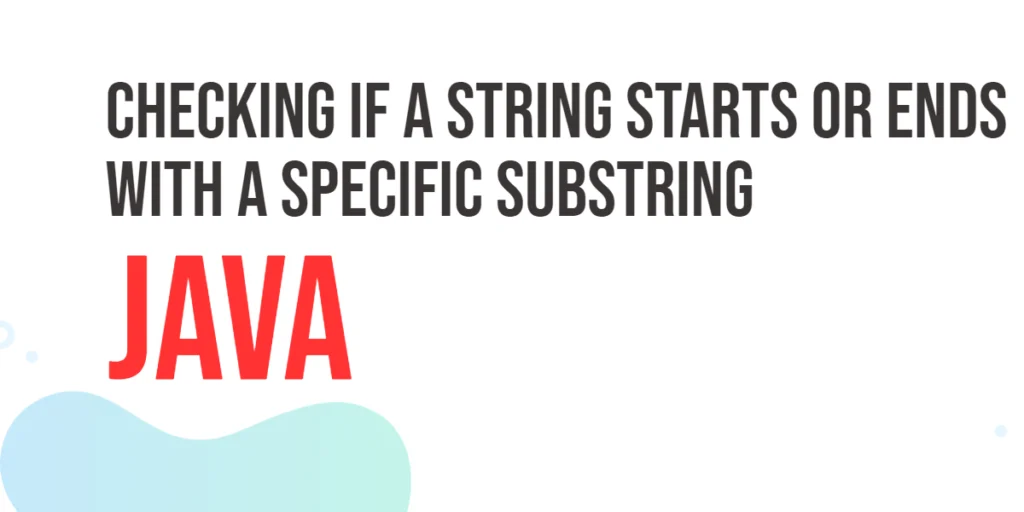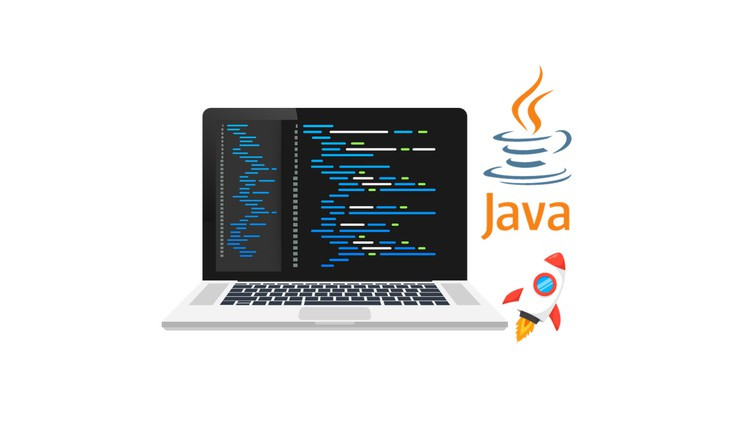When working with strings in Java, it’s often essential to determine whether a string begins or ends with a particular sequence of characters. This functionality is crucial in various applications, such as data validation, input parsing, and text processing. Fortunately, Java provides straightforward methods to accomplish this task efficiently.

with hands-on learning.
get the skills and confidence to land your next move.
In this article, we’ll explore how to check if a string starts or ends with a specific substring in Java. We’ll delve into the fundamental concepts, discuss the relevant methods provided by the Java String class, and provide code examples.
Checking if a String Starts with a Specific Substring
To determine if a string starts with a specific substring in Java, we can use the startsWith() method provided by the String class. This method accepts a single parameter representing the substring we want to check for at the beginning of the string. It returns a boolean value indicating whether the string starts with the specified substring.
public class StartsWithExample {
public static void main(String[] args) {
String str = "Java Programming";
// Check if the string starts with "Java"
boolean startsWithJava = str.startsWith("Java");
// Output the result
if (startsWithJava) {
System.out.println("The string starts with 'Java'.");
} else {
System.out.println("The string does not start with 'Java'.");
}
}
}In this example, we create a string str with the value “Java Programming”. We then use the startsWith() method to check if the string starts with the substring “Java”. The result is stored in the startsWithJava variable, which we subsequently print to the console.
Checking if a String Ends with a Specific Substring
Similar to checking if a string starts with a specific substring, Java provides the endsWith() method to determine if a string ends with a particular substring. This method takes a single parameter representing the substring we want to check for at the end of the string and returns a boolean value accordingly.
public class EndsWithExample {
public static void main(String[] args) {
String str = "Hello, World!";
// Check if the string ends with "World!"
boolean endsWithWorld = str.endsWith("World!");
// Output the result
if (endsWithWorld) {
System.out.println("The string ends with 'World!'.");
} else {
System.out.println("The string does not end with 'World!'.");
}
}
}In this example, we have a string str containing the text “Hello, World!”. We then use the endsWith() method to check if the string ends with the substring “World!”. The result is stored in the endsWithWorld variable, which we subsequently print to the console.
Handling Case Sensitivity
It’s important to note that both startsWith() and endsWith() methods are case-sensitive. This means that the comparison considers the case of the characters in the string. If you need case-insensitive comparisons, you can convert the string and substring to the same case before performing the check.
Here’s how you can achieve case-insensitive comparisons:
public class CaseInsensitiveExample {
public static void main(String[] args) {
String str = "Hello, World!";
String suffix = "world!";
// Convert both strings to lowercase and check for ending
boolean endsWithWorldIgnoreCase = str.toLowerCase().endsWith(suffix.toLowerCase());
// Output the result
if (endsWithWorldIgnoreCase) {
System.out.println("The string ends with 'world!' (case-insensitive).");
} else {
System.out.println("The string does not end with 'world!' (case-insensitive).");
}
}
}Conclusion
Checking if a string starts or ends with a specific substring is a common task in Java programming. By using the startsWith() and endsWith() methods, you can easily determine whether a string meets certain criteria based on its prefix or suffix. Understanding these string manipulation techniques is essential for writing efficient and robust Java code. I hope this article has provided you with a clear understanding of how to perform these operations and how they can be useful in your Java projects. For more content, please subscribe to our newsletter.







